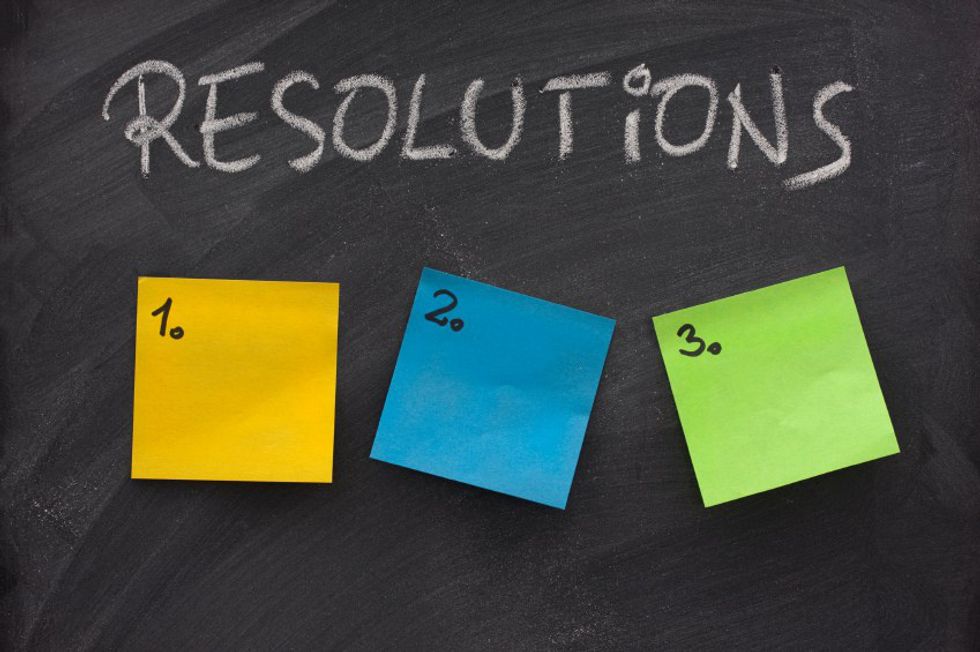Every year, we tell ourselves we are going to change something in our lives to supposedly better ourselves. Some of these resolutions may include going to the gym regularly, losing weight, reading more books, or just setting goals for yourself in general. We proclaim that we will make these changes for the new year, but most of the time these promises don't last long. The concept of New Year's resolutions appeal to most people but the challenges to actually keeping those resolutions stops people from achieving their goals.
I'm challenging the concept behind New Year's resolutions and their significance. The biggest obstacle to actually achieving a resolution is yourself. People say that it takes at least two weeks to get into a habit, whereas most people barely last two weeks with their resolution to hit the gym every day. The central focus behind a resolution is to better yourself, so if you become the obstacle that you need to overcome then maybe you're striving for the wrong resolution for the wrong reason.
Before we can start to change the things we believe to be wrong in our lives or with ourselves, we have to have a positive mindset to accomplish our goals. The first step to completing your resolution is having a positive mindset that this new goal will actually benefit your personal health or quality of life in some way. A resolution should not just be an extracurricular that you add in hopes it will make you happier or healthier; rather, this goal should be a change that will help with self-improvement in an aspect of your life that you feel really needs it. Think about the things you do best and the things you may not do so well in order to evaluate the change that you would like to make.
People use the concept of resolutions as a trend that everyone needs to follow, which is why most people make a "resolution," even if they don't feel that they need to commit. The term does not hold the same significance that it used to because the concept has become a joke, if only because we fail to follow through with the changes that we promise to make. The idea is to set an attainable and timely goal that will help you reach your vision. Go beyond the two weeks it takes to settle into a habit and actually follow through with your resolution.
The word "resolution" is an answer to a problem, so in this case you can think of it as a solution to the problems you struggled with during the past year. You need to be someone who commits and sets the example for others about living up to the promise you are making for yourself. A resolution is a long-term commitment, not a temporary solution.
This year, don't be that person that sets too many goals to count, or who makes a resolution that isn't attainable. A resolution does not have to be an elaborate proclamation of how you will become a better person. Evaluate the problems you would like to solve, whether the change is big or small. Reading more books would benefit your education by improving your reading skills and vocabulary. Maybe deleting social media from your phone so you only have access via computer could be a great way that you stay better connected with your friends and family, instead.
When it comes to a resolution, I'd like to think that the smaller-scale goals are actually better. If you are going to set a resolution for yourself then I recommend coming up with a thoughtful plan so that you can really achieve your goals. If you don't really need a resolution or you don't think you can stick to it, then don't make one because then you'll be part of the group that goes to the gym for four consecutive days only to get distracted by other things. Make this year different and make a change that is necessary for you. Trust me, when you succeed it will make you feel like you have achieved something greater for yourself.






















